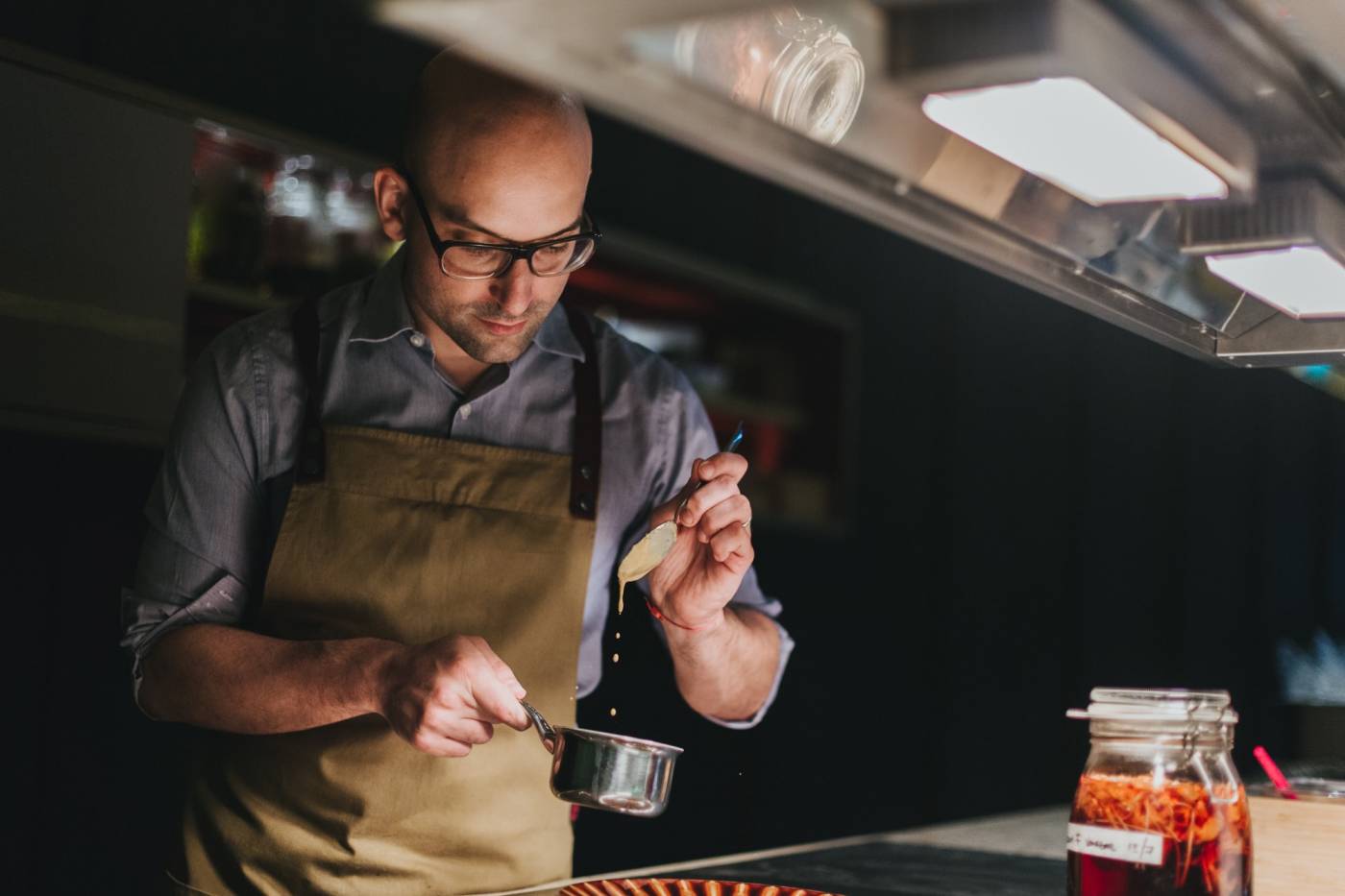
7 Invaluable Life & Leadership Lessons I Learned From my Culinary Mentors
Working alongside renowned chefs such as Heston Blumenthal, Claude Bosi and Andoni Luis Aduriz has undeniably had a fundamental impact on me, not only in my professional development as a chef but in my personal development as a leader. While my time at their restaurants allowed me to develop my repertoire of culinary skills, the lessons I learned extended far beyond refining my practical and technical ability in the kitchen and they continue to shape me both as the person and as the professional I am today.

1. Rules are just the starting ground
All three of the above-mentioned chefs are celebrated because of the way they have pushed culinary boundaries and changed our perception of food and dining, yet they all have a profound understanding of the importance of tradition, viewing rules as the starting point for further development. Andoni used the analogy that to reach the highest fruit you need to have your feet on the ground – we cannot fly – and it is through staying grounded and starting with what we know that we are able to discover what we don’t know.
2. Care for all aspects of the job
While it is fundamental for a chef to consistently produce high quality food, striving for excellence needs to extend to all aspects of the job; from executing a dish to perfection to the way you treat your staff. Although each of my mentors had different management styles, what was common amongst all of them was the way in which they cared for all areas of their job, leading by example through not only the way they cooked but through the way they interacted with the people and the space around them.
3. Creativity cannot be boxed
Creativity is a core element of being a chef but where this creative spirit resonates from depends entirely on the individual; all my mentors took inspiration from different sources, developing their own strategies to harbour their creativity whilst all understanding that inspiration can come from anywhere. When it comes to being creative, there are no predetermined rules to dictate what approach to take, instead it is important to identify what works for you, have an open mind to new concepts while being aware of your surroundings.
4. Believe in your own ability
All of my mentors knew their craft exceptionally well, trusting in their knowledge of food and cooking to be able to strike the perfect balance between leading with conviction without becoming arrogant. As a leader, no matter what profession you are in, believing in yourself while remaining humble in the process, is a way to not only change and improve yourself for the better but also to inspire and empower the people around you.
5. Making mistakes is a beautiful way to learn
No one is perfect and accepting that mistakes will inevitably happen is a precondition of being a chef, in fact it is not making any mistakes that is probably the biggest mistake. Whether it be accidentally dropping the wrong ingredient in the fryer or combining the wrong flavours, from initial errors there is always the potential for something wonderful. However, with this mentality comes a responsibility, and while these chefs were accepting of making mistakes, their discipline was always exemplary and during service striving for perfection was always the priority.
6. Live in the present
In today’s society we have become so preoccupied with other things that often we lose sight of what is around us and forget to live in the moment. All my mentors were deeply connected to their surroundings, knowing that inspiration can arise from anywhere and that it is the interactions and conversations we have on a daily basis that shape not only our perception of food but life in general. Working alongside them taught me that while it is important to disconnect and take time out, it is even more important to be present and live in the moment.
7. Innovation is discovery
Innovation and creativity in a restaurant concept is less about creation and more about discovery. Every one of my mentors was aware of that and food for them was less about indulgent conceptualisation and more about highlighting connections between what is already there. We associate innovation with the individual innovating, yet creativity is more about our ability to connect with what is around us, acknowledge what has been done in the past and then utilise this understanding in order to create something that is relevant for people today.
Trending
-
1 Jocko Willink's Inspirational Life & Net Worth
Aaqil Ashraf -
2 How Art Shapes Culture and Reflects Human Experience
Luke Fitzpatrick -
3 Meet Felix Williams and Maria Arthuer: The Parents of World Class Winger Nico Williams
Felix Yim -
4 Kai Cenat's Dad and the Enduring Public Interest
Aaqil Ashraf -
5 London Tube Stations Closed as Workers Stage Strikes
Mihir Gadhvi





Comments